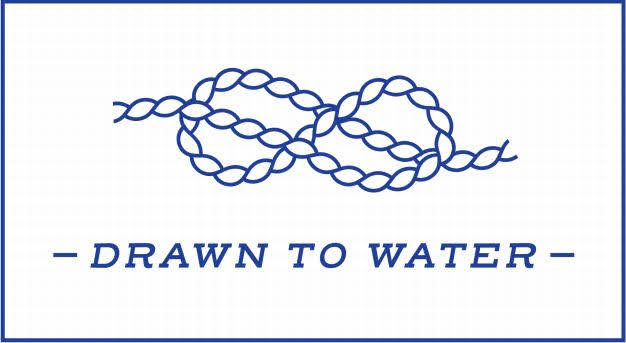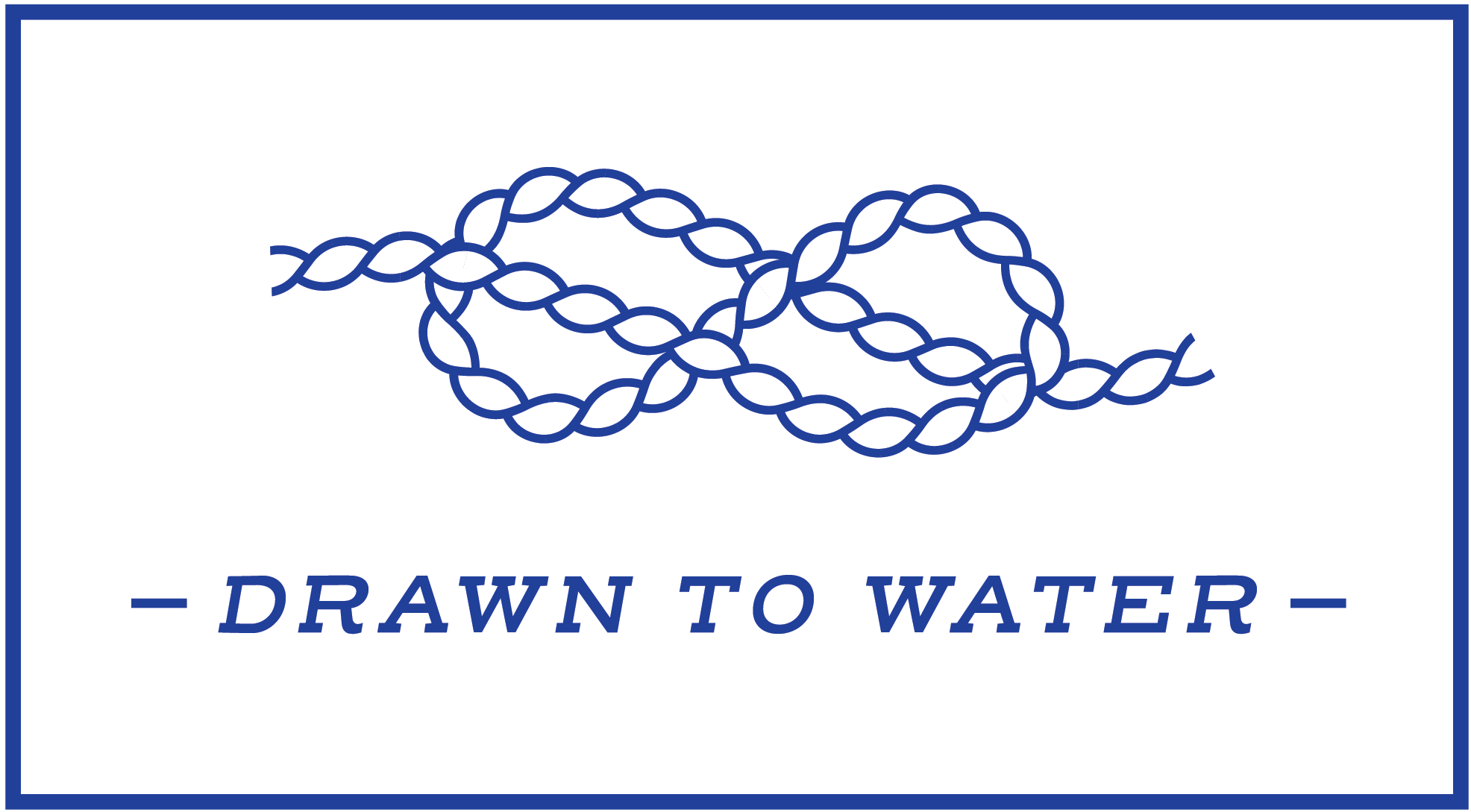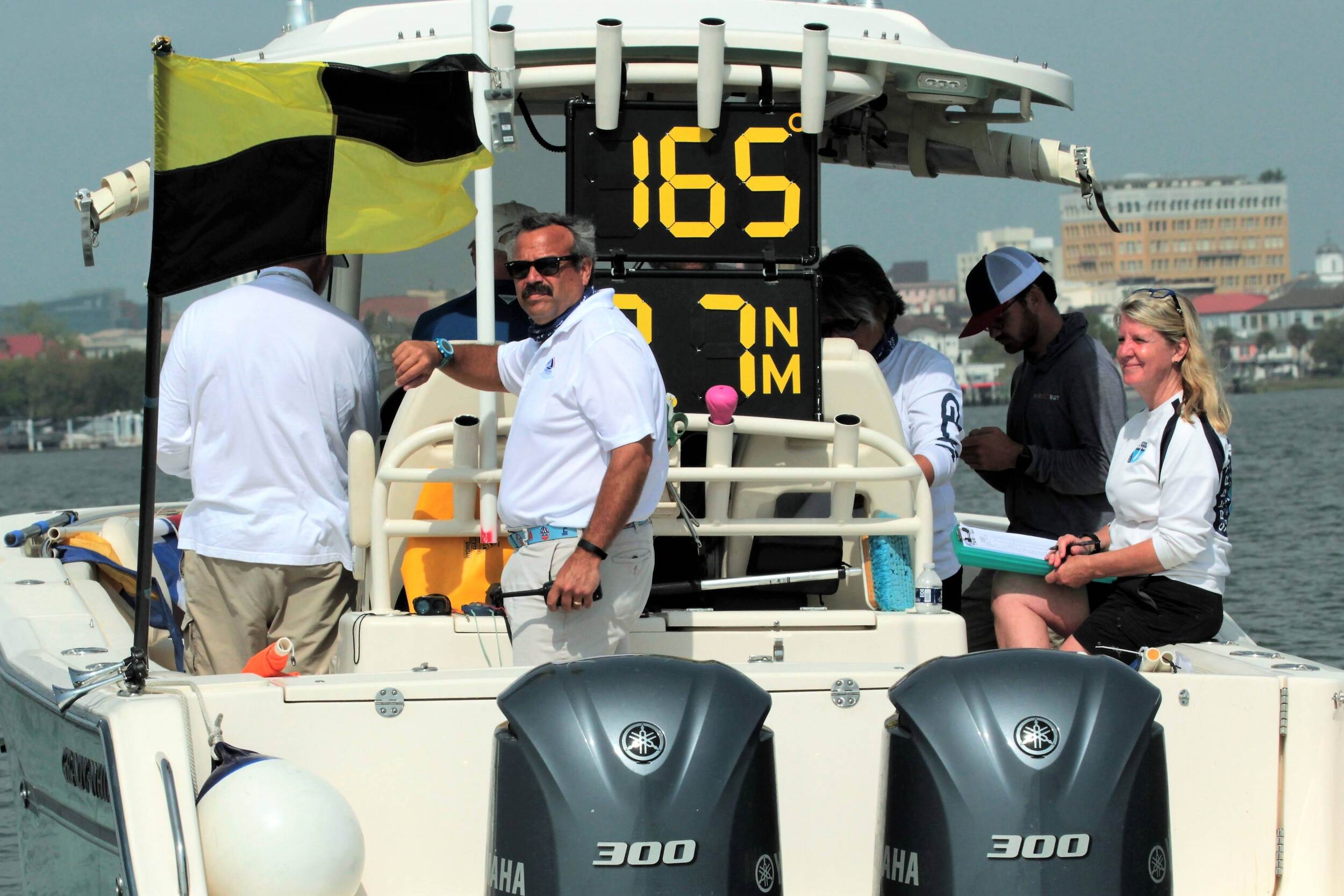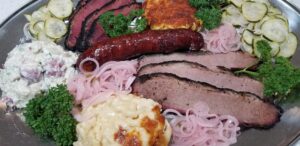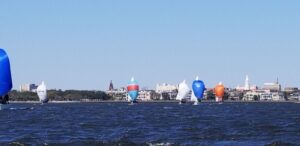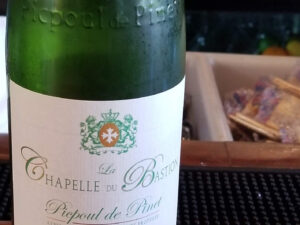To say that sailing race management has been part of our new chapter would be an understatement. Meeting local PRO’s and joining a yacht club were practically the first thing we did when we got to Charleston. It’s been non stop activity since and a great way to spend the first winter away from Wisconsin.
Pewaukee Lake, Wisconsin
We began our involvement in race management at a time when our children were learning to sail. It was a way for us to participate in a sport we enjoy, to be on the water with friends and to do our part to ensure quality race management continued.
Every role on the race management team is important. Participating in as many roles as we could on our home lake in club races gave us the base to start with. By taking the one day race management course given by US Sailing, we enhanced what we had been learning on the water and became certified race officers.
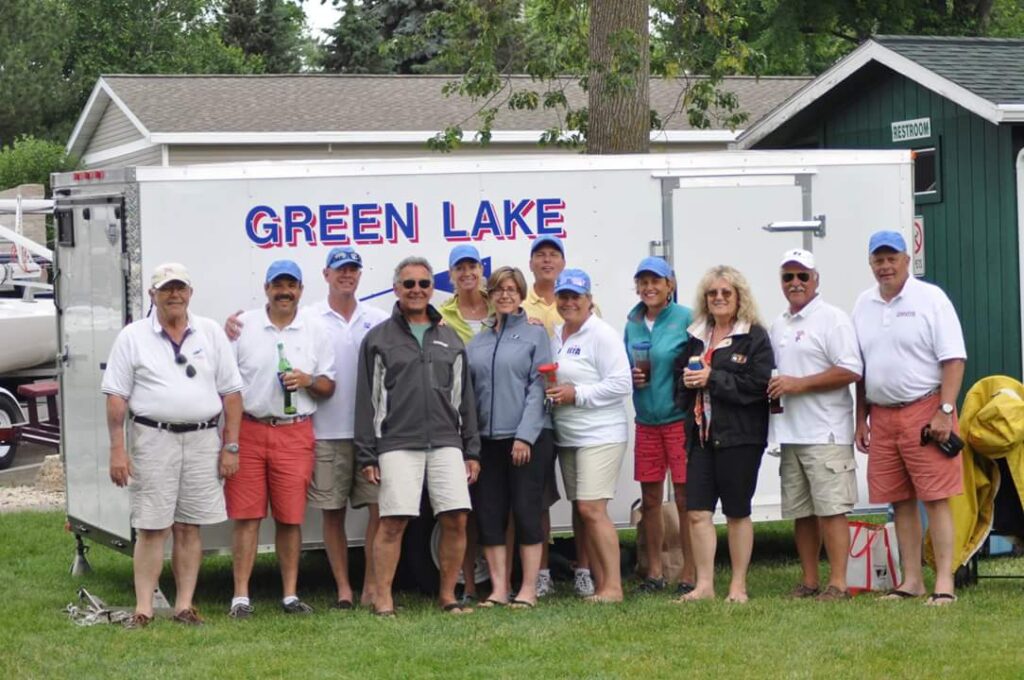
Encouragement from existing race officers and the willingness to go off lake brought in regatta involvement. The Pewaukee Yacht Club (PYC), Inland Lake Yachting Association (ILYA) and Milwaukee Youth Sailing Team (MYST) had given us exposure to scows, lasers and 420’s but taking the race management courses at Long Beach CA and Annapolis MD fueled our curiosity about conditions elsewhere. Current, tides, shipping lanes and coastal weather were all things we had not contended with on inland lakes.
Whatever the venue, commitment to providing efficiently run events that are safe, fun and fair keeps us learning.
Communication has proven to be one of the most important elements in developing solid race committee practices. Obviously, clear concise communication within the team is important while efficiently running quality races, but listening to the fleet brings a wealth of information to the event and earns the respect of the sailors. Learning from listening has been a great tool.
Charleston Harbor, South Carolina
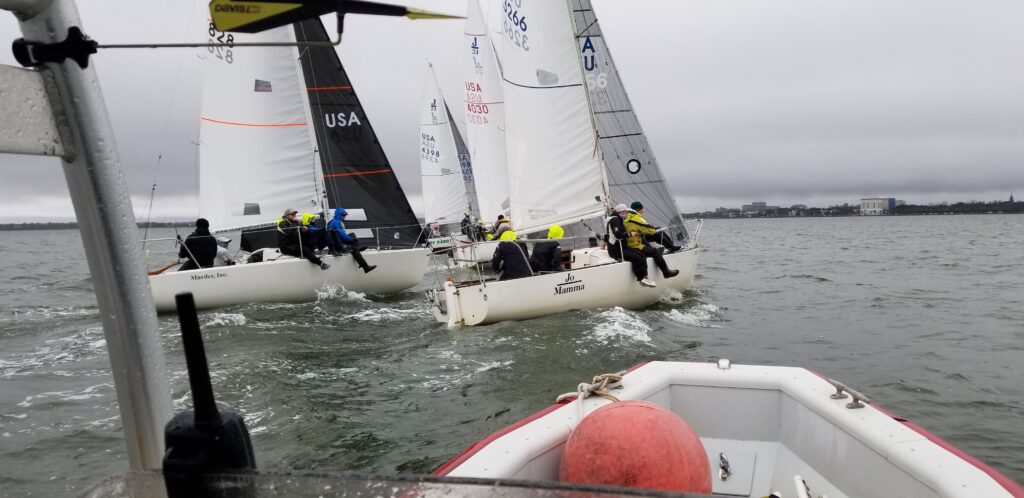
Charleston Yacht Club (ChYC) and Charleston Ocean Racing Association (CORA) are our new affiliations in South Carolina and are keeping us quite engaged. In January the J24 fleet out of ChYC took a chance on this wayward race committee to run their winter Chili Series. Setting courses in tide, current and winter weather conditions was definitely educational. Although they are keel boats, the one design racing was familiar to us.
Involvement in CORA has given us exposure to larger, varied classes of yachts. Starting the course races from the dock at Carolina Yacht Club and selecting courses that have the participants rounding fixed buoys in the harbor eliminates the need for setting marks square to the wind, or even upwind starts. Keeping the Harbor Pilots and Coast Guard advised of our plans is a necessary step. Charleston Harbor has the 10th busiest port in the US as well as an aggressive dredging project going on to deepen the access to the port for even larger ships. Commercial traffic stays within shipping lanes, but safety and staying clear is of utmost importance.

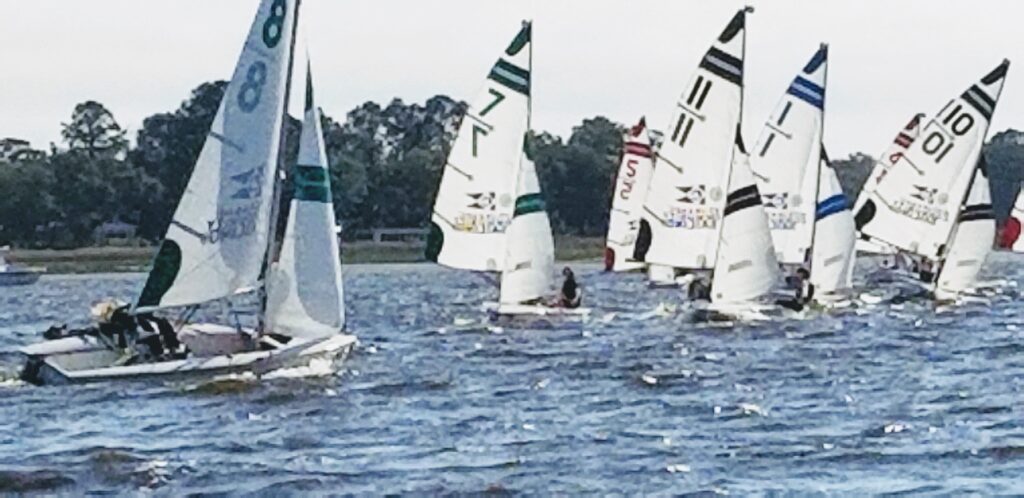
Hosted by James Island Yacht Club
Late winter and spring brought opportunities in high school sailing and College of Charleston team racing events. We had done MYST events on Pewaukee Lake, but alterations to the round robin due to Covid, on the water umpires and the ever present current were new to us.
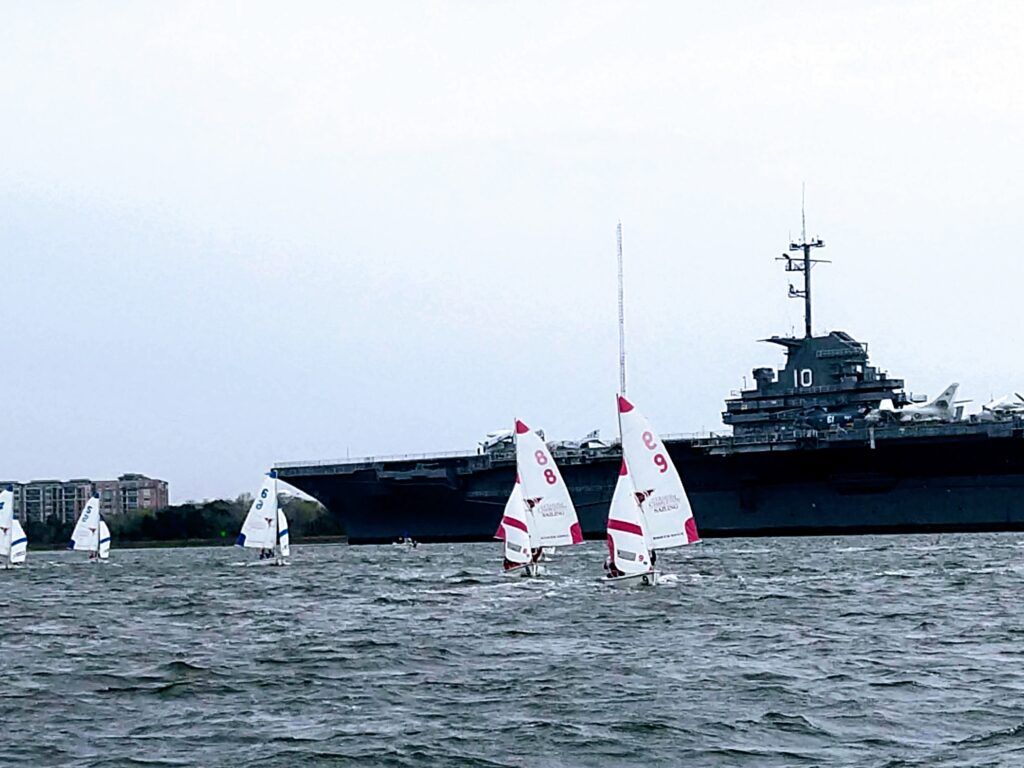
Spring in Charleston

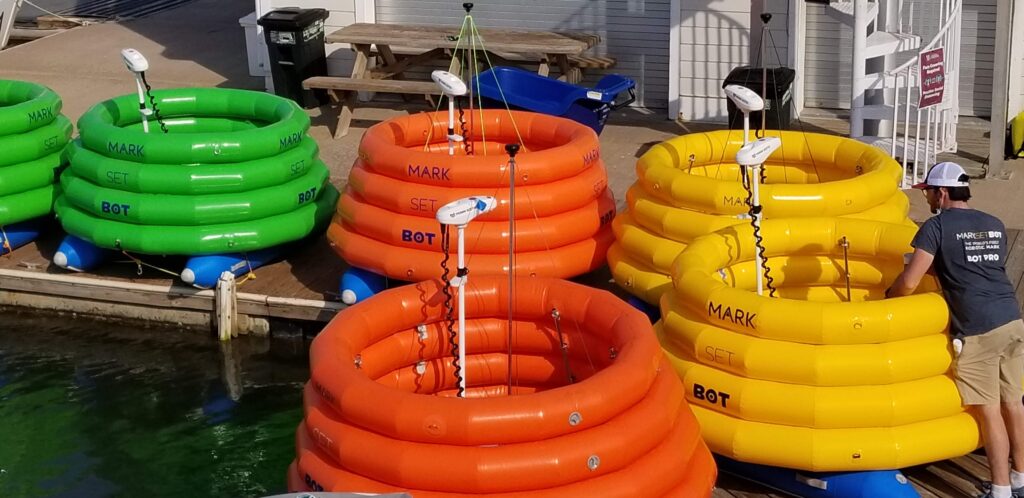
Mention spring in Charleston and you will most likely conger up images of azaleas and the grace of the south in bloom. The highlight of our spring has been the opportunity to be on the race committee on circle 2 of Charleston Race Week. With a total of 174 yachts competing in 14 fleets on 5 circles and an off shore course, it gave us a new appreciation for regatta organizers and volunteers. Melges 24 and J70 fleets were on circle 2 using Mark Set Bots as marks, offsets and gates. It was an unbelievable learning experience, taking us to a new level of observation, communication and detail. It was truly incredible to be included on race committee with top US Sailing race officers, particularly Mark Foster. Mark was our PRO for Race Week and the Gold Cup. He was prepared for every situation, observed everything, communicated clearly, anticipated next moves, and openly shared his experience. A real model for how to lead a race committee.
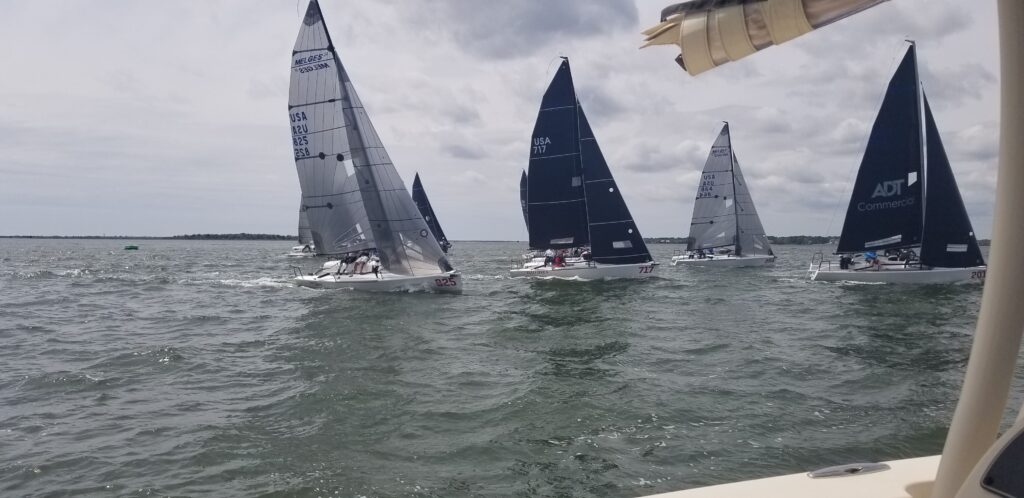
The Melges 24 Gold Cup, originally to be the fleet’s world champs, was held immediately following Race Week. Travel restrictions made international participation impossible. For a second year in a row Covid caused cancellation of Charleston hosting the Worlds. It was a smaller fleet, but exciting none the less.
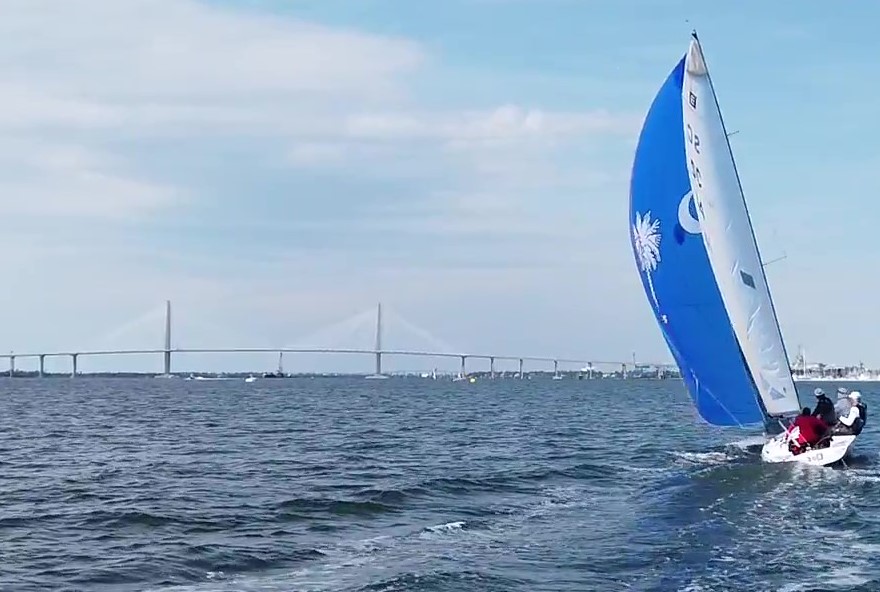
Carolina Yacht Club hosted their Spring Regatta, featuring E Scows and VX One fleets. Having E Scows here took us back to our ILYA roots. We were also able to award the first invitation to the 2021 E Scow Blue Chip. These are both high performance boats with very talented sailors making for exciting moments on the harbor. In a year of limited travel, turn out was smaller for all these events. Organizers hope for better turn out next year. When it comes to challenging conditions and southern hospitality, we would definitely encourage you to put a Charleston regatta in your plan.
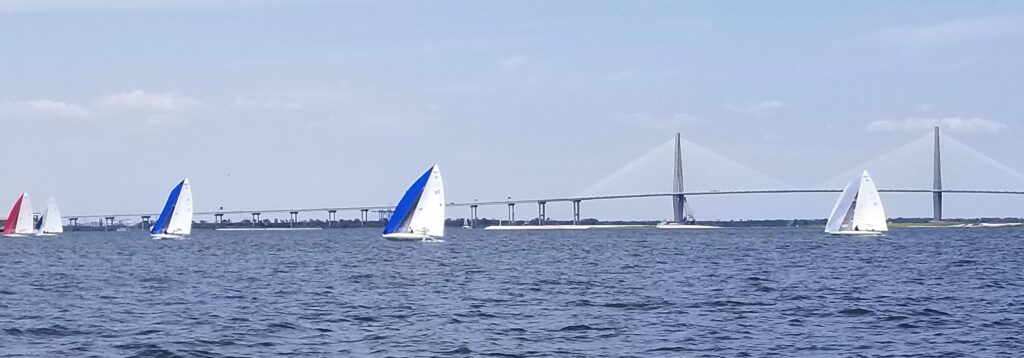
Future involvements
We always knew that sailing and race committee were going to be part of our adventure – we never could have imagined the warm reception and opportunities we have been afforded. Now that we’ve come this far, we don’t seem to be slowing down. Watch for reports of future regatta experiences! We are committed to another high school regatta and the ILCA Atlantic Coast Championship at Wrightsville Beach in May. The harbor summer series is on the horizon and we will be back in Wisconsin this summer for the A Scow Nationals and the ILYA E Invitational.
